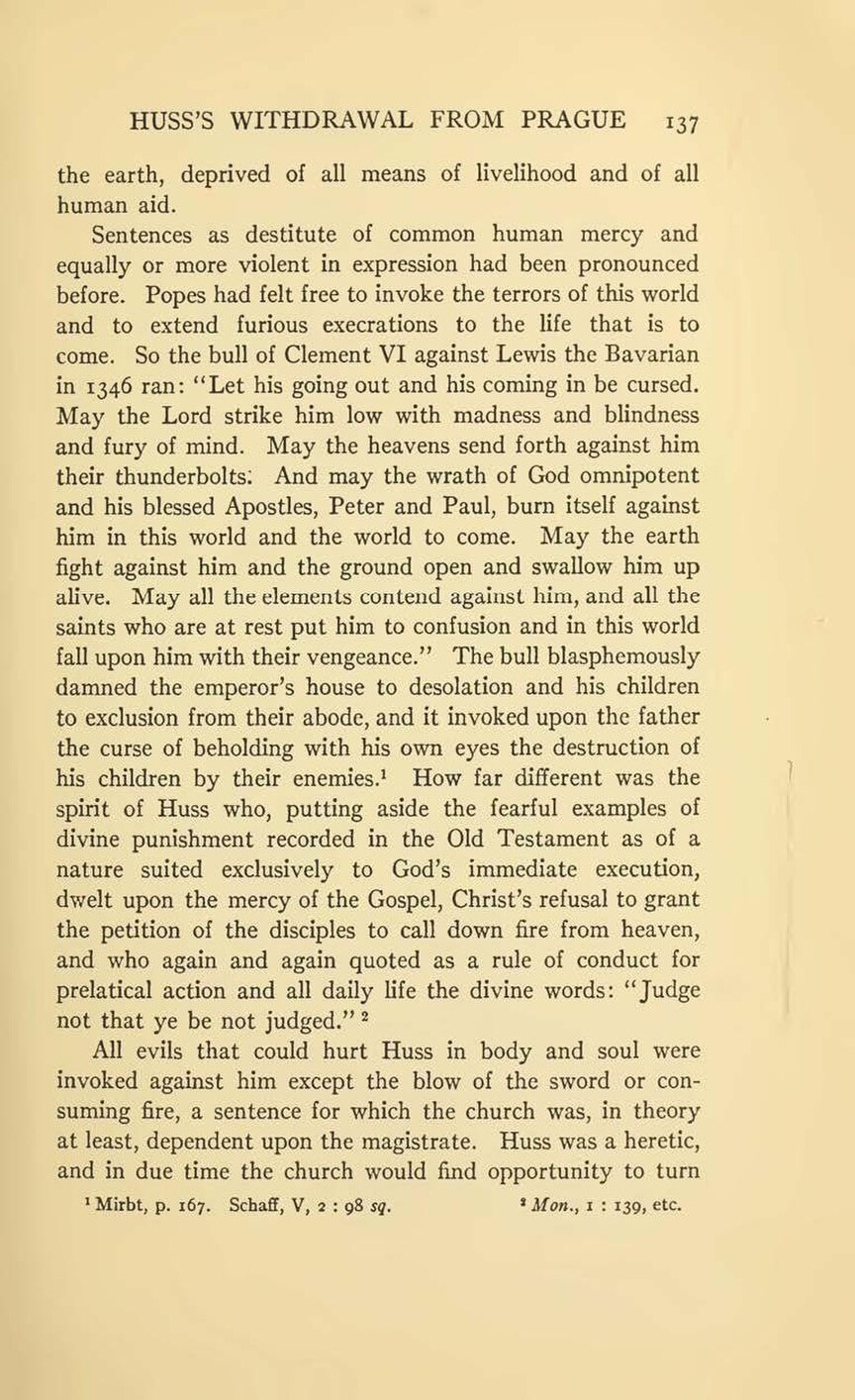the earth, deprived of all means of livelihood and of all human aid.
Sentences as destitute of common human mercy and equally or more violent in expression had been pronounced before. Popes had felt free to invoke the terrors of this world and to extend furious execrations to the life that is to come. So the bull of Clement VI against Lewis the Bavarian in 1346 ran: “Let his going out and his coming in be cursed. May the Lord strike him low with madness and blindness and fury of mind. May the heavens send forth against him their thunderbolts. And may the wrath of God omnipotent and his blessed Apostles, Peter and Paul, burn itself against him in this world and the world to come. May the earth fight against him and the ground open and swallow him up alive. May all the elements contend against him, and all the saints who are at rest put him to confusion and in this world fall upon him with their vengeance.” The bull blasphemously damned the emperor’s house to desolation and his children to exclusion from their abode, and it invoked upon the father the curse of beholding with his own eyes the destruction of his children by their enemies.[1] How far different was the spirit of Huss who, putting aside the fearful examples of divine punishment recorded in the Old Testament as of a nature suited exclusively to God’s immediate execution, dwelt upon the mercy of the Gospel, Christ’s refusal to grant the petition of the disciples to call down fire from heaven, and who again and again quoted as a rule of conduct for prelatical action and all daily life the divine words: “Judge not that ye be not judged.”[2]
All evils that could hurt Huss in body and soul were invoked against him except the blow of the sword or consuming fire, a sentence for which the church was, in theory at least, dependent upon the magistrate. Huss was a heretic, and in due time the church would find opportunity to turn
